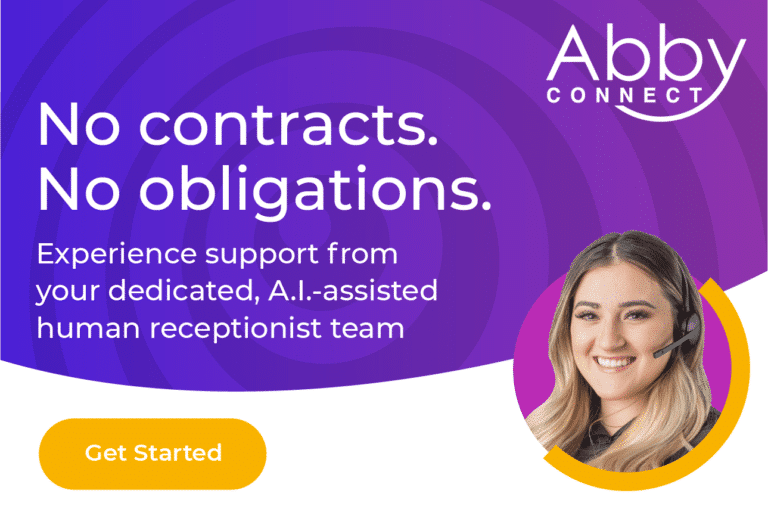No man is an island, as they say.
In that same spirit, no attorney is a law firm. Running even the smallest legal office often requires support staff, from receptionists and clerks to paralegals and financial managers.
Increasingly, many of the functions required to run a small business are handled off-site by remote workers, in many cases employed by third-party companies.
Two roles in this category include virtual legal assistants and virtual legal receptionists, which, although demonstrating some overlap, have distinctions that must be considered when outsourcing your firm’s tasks.
What Is A Legal Virtual Assistant?
A legal virtual assistant is usually one person, though if you don’t require regular assistance, you may hire a succession of people on a per-project basis. They are generally independent contractors and work from home, possibly even out of state. Often lawyers may use virtual assistants to help out other virtual paralegals and virtual lawyers who are a part of the firm to help with their day-to-day tasks.
Like an in-house assistant, a legal virtual assistant may be assigned any number of duties designed to make your law firm run more effectively and save the time of you or your employees, who must complete more specialized tasks.
As such, what a virtual assistant does is largely subject to agreement between your firm and the person you hire for the job, and part of the job description may include services more often associated with a receptionist, which may include:
- Answering phones and directing calls
- Taking messages
- Scheduling meetings
- Maintaining calendars
- Bookkeeping
- Researching
- Organizing travel
- Buying gifts
- Writing letters
- Managing social media
- Entering data
- Research
- Case filing
- Document + client preparation
- Preparing presentations1
What Is a Legal Virtual Receptionist?
As with in-house receptionists, the primary responsibility of a legal virtual receptionist is to greet customers by answering their phone calls or facilitating live chat services.
However, there’s a further distinction to be made, as not all virtual receptionist services are equal. Some may better resemble simple and generic answering services or call centers, which results in positioning someone unfamiliar with your firm and operations as one of its first representatives that your existing and potential customers interact with.
In contrast, quality services rely on creating a virtual receptionist team that gets to know your firm and its clients, confidently and correctly answers frequently asked questions, and integrates with your calendar, client intake, and workflow systems to effectively work within your firm. The best virtual receptionists sound no different than an in-house receptionist to your callers, empowering small firms to sound just like the big guys at a fraction of the cost.
Jobs that virtual receptionists will perform include:
- Answering, announcing, and transferring calls, often 24 hours a day
- Taking written or voice messages
- Making outgoing calls
- Client intake
- Answering FAQs
- Scheduling calendar appointments
- Screening calls and blocking unwanted callers
What’s the Difference Between a Virtual Receptionist and a Virtual Assistant?
Are legal virtual assistant services the same as receptionists? Not quite.
Now that you have a better understanding of what virtual assistants and virtual receptionists are, let’s highlight some of the crucial differences.
- Virtual assistants are usually one person, while virtual receptionists are companies that provide a team of receptionists to handle your firm’s needs.
- Virtual assistants may take on a wide range of assignments, which may or may not include reception. Their tasks may not even be strictly business related. Virtual receptionists, on the other hand, are generally very focused on customer service.
- Virtual receptionists are trained as friendly, outgoing customer service professionals whose goal is to provide a positive experience for your callers. Virtual assistants may possess these qualities but may not have professional training in customer service.
- The main job of a virtual receptionist is answering all your calls as they come in and pleasantly dealing with each caller’s needs. They will never be distracted by juggling other assignments, as can commonly occur with a virtual assistant. For someone who eventually responds to existing and potential clients, a virtual assistant would suffice; but if you want prompt reception, you need a virtual receptionist.
- Virtual assistants are paid by the hour no matter what kind of work they do for you. Virtual receptionists are paid by the minute or by the call—making their services an easily scalable resource.
- Virtual assistants are generally paid to replace an on-staff assistant position, whereas virtual receptionists address specific, targeted needs:
- Replacing in-house receptionists
- Handling after-hours calls or periods where an in-house receptionist is off-duty
- Providing in-house receptionists with more time to focus and assist with internal duties—particularly if fulfilling a hybrid role with other responsibilities.
Let Abby Connect Handle Your Receptionist Needs, Virtually
If your firm is growing to the point where you need extra help, you’re doing something right! But the next steps you take are as important as what you did to get here.
A successful attorney’s phone is ringing nonstop, and even if you’re ready to take on a virtual assistant, you may still need a virtual receptionist to handle the call volume.
With an attorney virtual receptionist team from Abby Connect, you’ll never lose a potential client to a missed call, and the positive customer service experience will ensure that those clients keep coming back.
So while you may not be an island, when you have a thriving law firm supported by Abby Connect, you can at least vacation to one.
Sources:
-
- WeWork. What is a virtual assistant and what do they do? https://www.wework.com/ideas/professional-development/business-solutions/what-is-a-virtual-assistant
- Lawclerk. Why Solo and Small Law Firms Should Outsource Phone Answering Services. https://www.lawclerk.legal/blog/why-solo-and-small-law-firms-should-outsource-phone-answering-services/
- ABA Journal. Take one thing off your plate with virtual receptionists. https://www.americanbar.org/groups/journal/articles/2022/take-one-thing-off-your-plate-with-virtual-receptionists/
- ZipRecruiter. What Is a Virtual Receptionist and How to Become One. https://www.ziprecruiter.com/Career/Virtual-Receptionist/What-Is-How-to-Become





